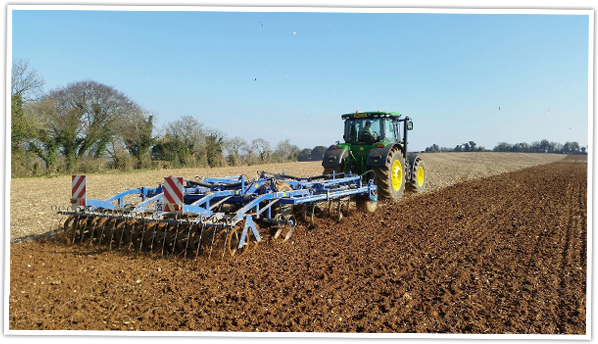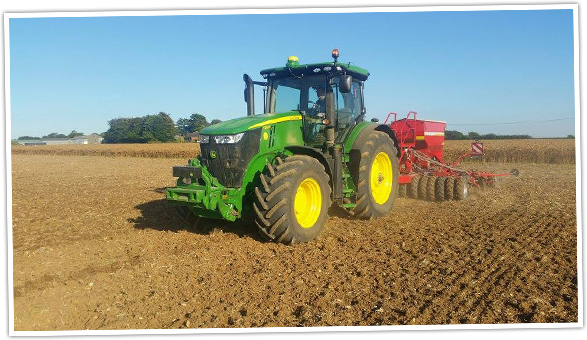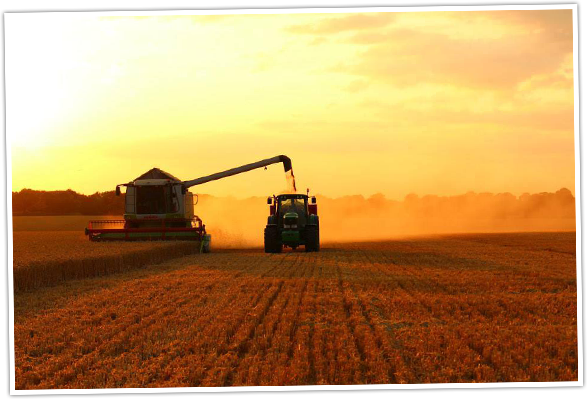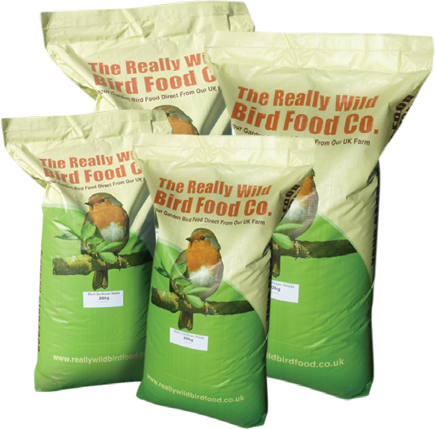Cultivating the Land
Preparing a well-cultivated, free draining seed bed is highly important, particularly when growing bid seed crops, which have a short growing season, and therefore need to establish roots and a comfortable bed early on.
With farm vehicles getting heavier, a lot of effort has to go into preparing a fine level seed bed, which means that Richard will begin with a deep-tine subsoiler, before working the ground with a variety of cultivators, depending which seed is being planted. Our sunflowers, for example, require a deep seed bed due to their size, while fine seeds require a much shallower bed. 






